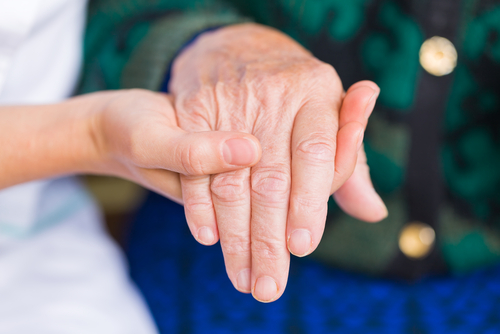Care giving is undoubtedly a cumbersome task. However, more often than not we tend to forget how difficult these lifestyle changes are for the care recipient. Moreover, it’s hard to feel grateful when one is in pain.
Have you ever thought about how you receive care?
If yes, it’s absolutely okay to feel that way. Both the caregiver and the care recipient must be courageous, and more importantly, each party must be mindful of essential details to ensure they are getting the best results.
Here are a few tips that will help you as a care recipient to help making the aging-in-place process simpler.

1. Becoming Socially Active
According to the National Alliance on Mental Illness, more than 6.5 million American seniors suffer from depression. To help combat the onset of mental illness, becoming socially active will help you foster relationships and improve your emotional help.
As human beings we are social creatures and in need of fellowship. The way in which we come to know and understand the world is heavily influenced by the relationships we grow — You should never let your age hinder you from creating strong, positive, and meaningful social ties.
 2. Embrace Positive Thinking
2. Embrace Positive Thinking
The fear of being alone and forgotten, and concerns of poor health may, in fact, stymie the process of aging. It is important in moments such as these to focus on your strengths and the positive aspects of your life.
Don’t let your age get in the way of living a fulfilling life!
Acclimating into society and living an independent life may seem an uphill climb due to health complications we develop as we age, but it is imperative you shut out the negative voice in your head.
 Pull yourself together and realize that you are a survivor. To elaborate, as we age our society progresses, each day revealing more efficient and effective ways of life than we have ever known — If you’ve survived trying times, look within and use that same source of inner strength to will yourself into a positive mentality.
Pull yourself together and realize that you are a survivor. To elaborate, as we age our society progresses, each day revealing more efficient and effective ways of life than we have ever known — If you’ve survived trying times, look within and use that same source of inner strength to will yourself into a positive mentality.
Mastering the art of communication will significantly help you stay connected to family and friends — they will be your greatest benefactors to help weather the storm.
 3. Accept Assistance Open-Heartedly
3. Accept Assistance Open-Heartedly
In the need to reaffirm our independence as we age, we can oftentimes push ourselves too hard. This will affect our health negatively by exerting excess strain on our physical and mental well-being — asking for help is not a forfeit of independence, but a way in which to work smarter while building trust.
 Express your needs and concerns with your care provider in full disclosure, so that they may assist you as effectively as possible. Remember, reaching out for help is not a sign of weakness, but instead reveals that you are determined to live a fulfilling life.
Express your needs and concerns with your care provider in full disclosure, so that they may assist you as effectively as possible. Remember, reaching out for help is not a sign of weakness, but instead reveals that you are determined to live a fulfilling life.
When faced with our changing physical/mental state, reassurance that we are loved dearly can boost our self-confidence, in turn, bettering our health.
 Bear in mind humility as your caregiver helps you accomplish your daily routine. You may feel vulnerable initially, but in time you will form a bond that is only experienced between the two of you.
Bear in mind humility as your caregiver helps you accomplish your daily routine. You may feel vulnerable initially, but in time you will form a bond that is only experienced between the two of you.
Care giving requires a full commitment of each party, one that is based on living a vibrant life. It will take time to adjust to the changes you’re experiencing, but you must be bold and realize that change is necessary for our survival. Following the aforementioned tips will help usher you into a new way of life.









